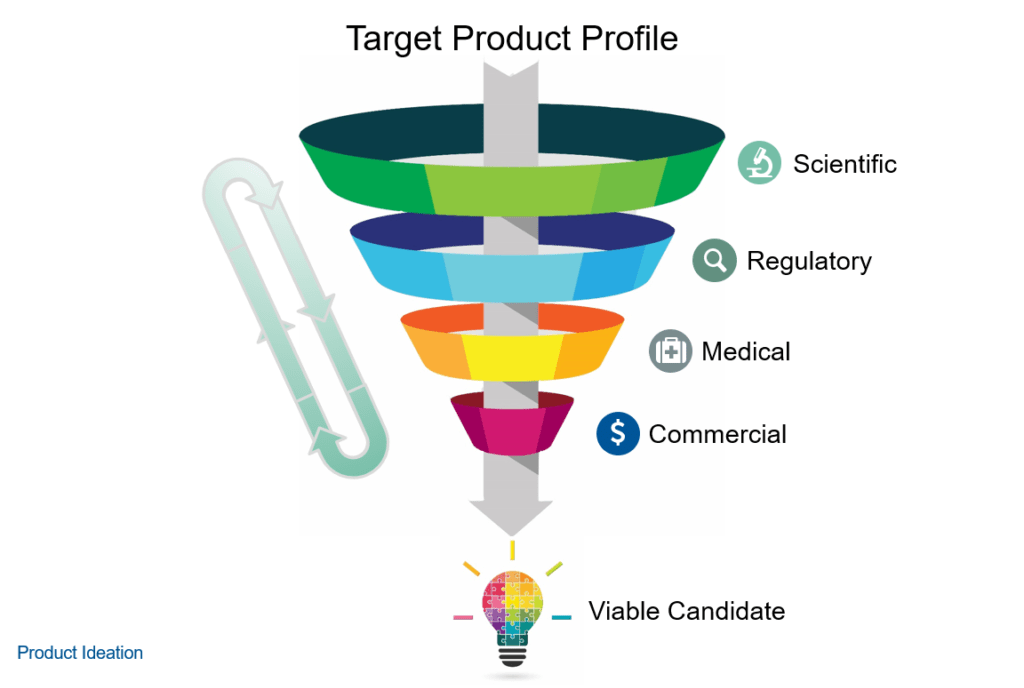Product Ideation: Who Wants to Develop a Successful Product?
As Sponsors become more aware of the benefits and risks of developing products in the current market, their focus often turns to Product Ideation and how this process can help develop smarter products. Here the answers to some key questions about Product Ideation and the value it can add to decision-making early in the development process.
What Is Product Ideation and How Does Premier Consulting Do It?
As we previously blogged in more detail, Product Ideation is a partnering process in which Premier Consulting works with a Sponsor to identify optimal products for development based on the Sponsor’s unique requirements or technology. Premier Consulting designs a custom process that involves frequent consultation with the Sponsor and utilizes our experience. The end result is a blueprint for a product that meets a medical need in a receptive market.

Which Type of Company Benefits from Product Ideation?
Premier Consulting has performed Product Ideation for large and medium pharma, small biotechs, and even virtual companies with one or two employees. All types of companies, from drug, device, and combination product manufacturers, benefit from our years of expertise in 505(b)(2) product approvals and our analytical approach to evaluating market needs. Which company wouldn’t want to develop the product that has a greater chance of success?
Last year, 63 products were approved via the 505(b)(2) regulatory pathway. With the market value of 505(b)(2) products in the billions of dollars, it is no wonder the 505(b)(2) pathway is increasingly appealing to large and small pharma.
What Information Does Premier Consulting Use?
At Premier Consulting, we recognize the value of collecting and utilizing relevant data. After all, finding innovative ways to apply existing data is what the 505(b)(2) pathway is all about. So over the years we have put together a unique database on 505(b)(2) products and their attributes. This database can be used for many purposes such as identifying how different review Divisions at the FDA view different programs or products.
In addition, Premier Consulting utilizes publicly available and subscription databases, obtains feedback from specialty clinicians in relevant therapeutic areas, and has access to payer information on marketed products.
As Product Ideation is always tailored to the specific needs of the Sponsor, the process and the information required are different every time. But with our familiarity with sources ranging from the medical literature to market analytics, we can pull the data needed to make better-informed product choices for each unique ideation.
Can Product Ideation Be Used to Identify Products that Do Not Require Nonclinical and/or Clinical Studies?
Of course! We have done this already. In fact, the Sponsor’s goal for the Product Ideation process is often to identify products with the least cost or shortest time to market, and therefore few or no clinical studies are required. This is one of the greatest benefits of the 505(b)(2) pathway.
We note, of course, that these products still require a full NDA submission with all the requirements for approval provided from existing data along with justifications. But we excel at that.
What Information From an Approved NDA can Be Used Without Permission From the NDA Application Holder?
This question goes to the core of the 505(b)(2) process in general. While it is not possible to utilize much of the information from the NDA application without permission, it is possible to use data in the approved labeling, or to locate the publications of the studies that supported approval.
Premier Consulting can give more specific advice on which data can be used in a particular 505(b)(2) application and which data cannot.
Is it Possible to Get 12 Years Exclusivity via the QIDP Program?
Yes. As we previously blogged, designation via the Qualified Infectious Disease Product (QIDP) program grants 5 years of marketing exclusivity in addition to any other marketing exclusivity awarded to an approved product.
So for a 505(b)(2) product granted 3 or 5 years exclusivity, the 5 years from the QIDP designation results in a total of 8 or 10 years of marketing exclusivity. And a product granted 7 years of orphan exclusivity will get 12 years of total marketing exclusivity with the QIDP exclusivity! This boon was granted for Astellas Pharma Inc.’s antifungal Cresemba Powder and Tablets. According to our records, of the 10 products that have been granted QIDP exclusivity to date, the Cresemba products are the only drugs that also received orphan exclusivity, and therefore the only drug products in the US to get 12 years of marketing exclusivity.
Can Product Ideation Be Applied to Devices?
Yes. Many Product Ideation projects relate to finding the best drug for a Sponsor’s proprietary drug-delivery device. But the process can also be applied to identifying the optimal device for a Sponsor’s requirements.
Is the Risk Involved in the Development of Orphan Drugs via the 505(b)(2) Pathway Greater than Non-orphan Drugs, from a Cost Perspective?
There can be aspects to orphan programs that increase costs such as longer clinical studies due to difficulties in recruiting small patients populations. However, in many cases, there can be strong financial benefits to developing orphan products, aside from the well-known incentives such as PDUFA fee waivers and marketing exclusivity.
For example, sometimes smaller clinical studies and greater extrapolation of data can be justified based on the particular condition compared with non-orphan products. The Product Ideation process can provide the information needed to select orphan products that fit your requirements.
Contact us to discuss your Product Ideation goals.
Authors:
Angela Drew, PhD
Product Ideation Consultant
Ken Phelps
Strategic Advisor